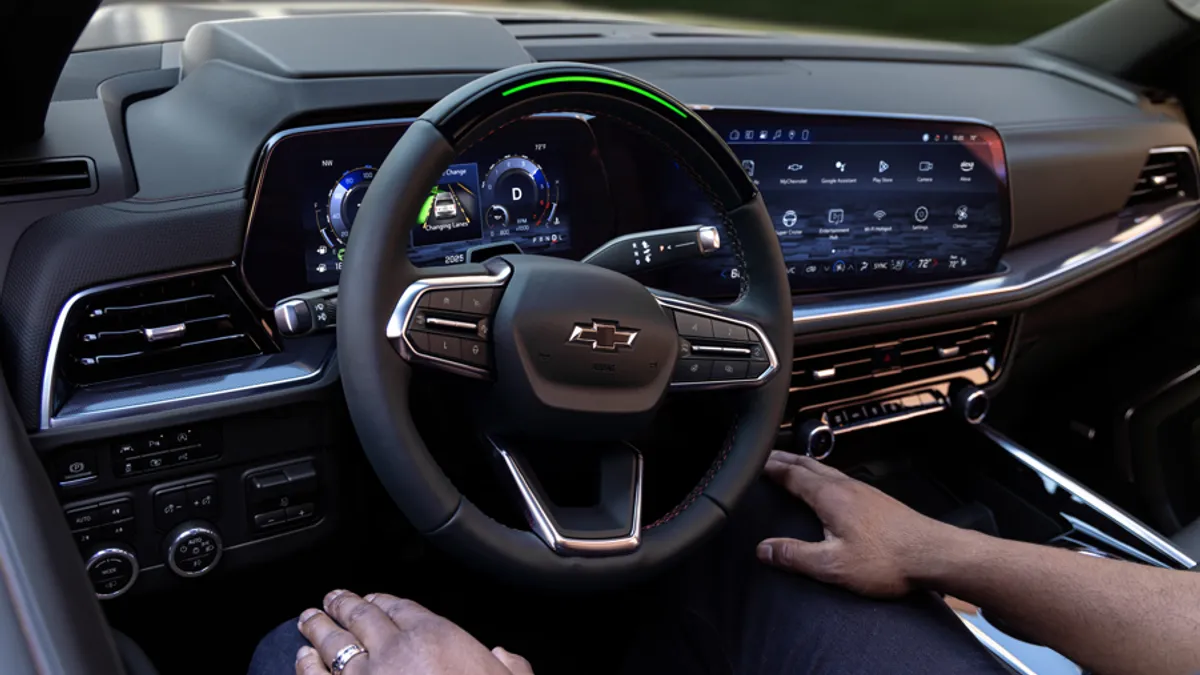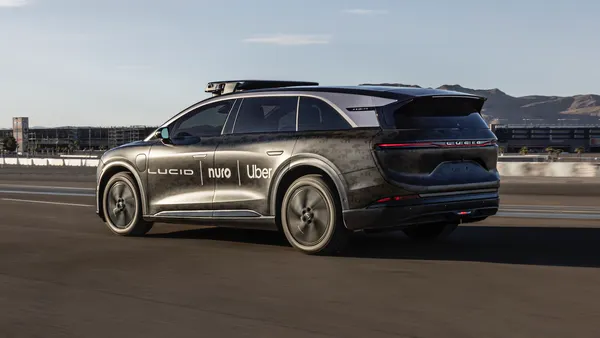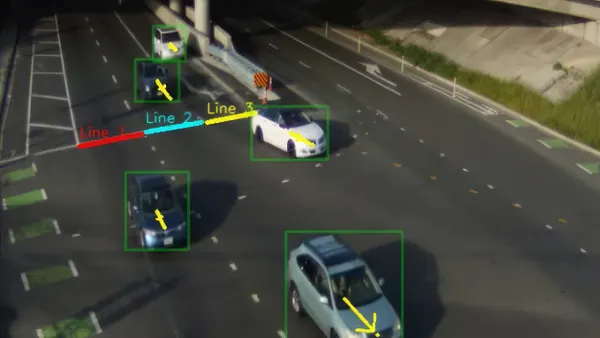Dive Brief:
- Waymo, the autonomous driving technology unit that spun out of Google’s self-driving car project, closed on a $5.6 billion oversubscribed investment round led by parent company Alphabet, the company announced in a blog post Friday.
- Other funding round participants included existing Waymo investors and private equity firms Andreessen Horowitz, Fidelity, Perry Creek, Silver Lake, Tiger Global and T. Rowe Price.
- Waymo plans to use the money to expand its “Waymo One” commercial ride-hailing service to more U.S. cities, as well as improve its AI-powered “Waymo Driver” autonomous driving technology stack for supporting other mobility applications.
Dive Insight:
With the financial support of Alphabet Inc., Waymo is recognized as an industry leader in the development of autonomous vehicles. Google began working on self-driving cars in 2009 and launched the company the same year.
The company previously secured other significant investments, including its first external funding round of $2.25 billion in March 2020 and a $2.5 billion round in June 2021.
Waymo is currently providing around 100,000 paid trips a week after opening its “Waymo One” ride-hailing service to the public in San Francisco, Los Angeles and Phoenix, which publicly launched earlier this year. The company also offers curbside pickups using AVs at Sky Harbor International Airport.
Waymo’s Phoenix metro area robotaxi operations are currently the largest fully autonomous ride-hailing service area in the world, with 180 square miles of coverage, according to the company.
To date, Waymo’s fleet of autonomous test vehicles has completed over 20 billion miles of on-road and computer simulated testing to refine its software as it prepares to scale its ride-hailing service to more U.S. cities. The data collected by Waymo vehicles is used to train machine-learning algorithms that predict road users’ behavior and enhance decision-making of the AVs to improve safety.
The funding comes as the company continues to improve its core technology. In August, Waymo launched the sixth-generation of its Waymo Driver, which serves as the brains of its ride-hailing vehicles. The new hardware includes 13 cameras, four lidars, six radar units and an array of external audio receivers. When combined with high-resolution maps, the sensor suite allows its AVs to safely navigate autonomously.
Earlier this month, Hyundai Motor Co. and Waymo announced a multi-year partnership to equip the company’s electric Ioniq 5 SUV with fully autonomous driving technology and deploy them on the Waymo One platform.
Waymo is also adding its AVs to Uber’s platform in Austin, Texas and Atlanta as part of a separate agreement that will allow customers to hail a self-driving Waymo vehicle from the Uber app.













